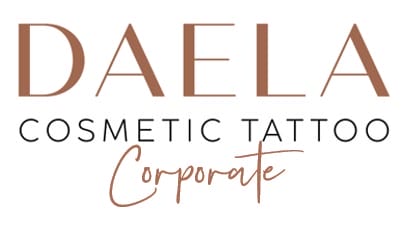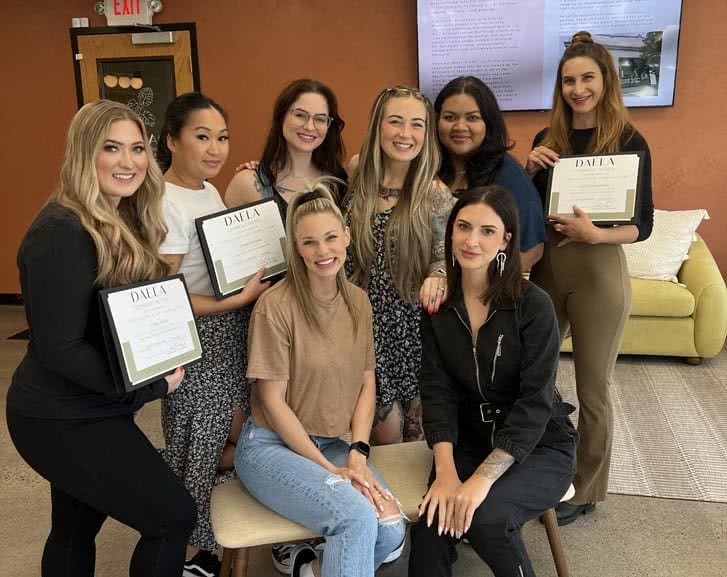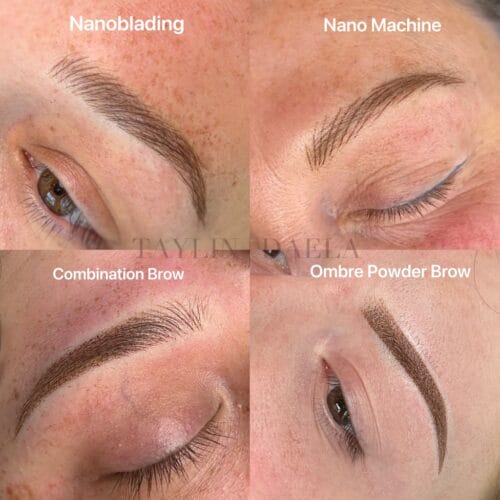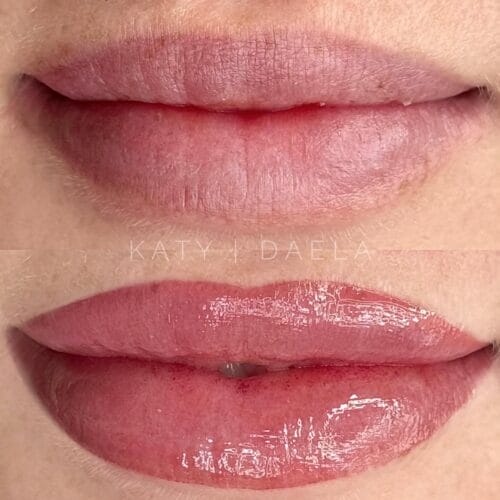You’ve completed training, done hundreds of hours of practice on fake skins and models and now you are ready to start your PMU career. Now what?
Here are two solid options for a cosmetic tattoo artist, just starting out, and an option for those ready to grow:
OPTION 1:
Independent Contractor: Sole Proprietor
To have a career in cosmetic tattoo as a successful independent you will need to wear a lot of hats and be willing to work- a lot. Whether you open your own small space, just big enough for you or rent space from a studio full of independent contractors, you still must run your business. We’ve seen artists working in tattoo shops, nail salons, hair salons and lash boutiques.
10 Things you need to start your business:
- Get a business license, state required licensing, and liability insurance.
- Open a bank account. You need excess funds to support the business until you get ahead.
- Rent or lease a space.
- Set up your space. You’ll need furniture, equipment, and supplies.
- Establish your pricing.
- You need a website.
- You need quality before & after pictures and video content.
- Market yourself, you’ve got to attract clients. You’ll want to be found on: Google Places, Instagram, Yelp, and Facebook.
- CRM Tool to manage booking of clients, appointment reminders, rescheduling.
- Accounting Software to track income and expenses for year-end taxes, state, and local taxes.
How much will you spend to open your independent cosmetic tattoo business?
The most important thing to consider is cash flow while you ramp up your client base. The last thing you want is to be stressed about whether or not you can pay your bills. Consider preparing cash flow to support:
- 3 months of rent
- 2 months of supplies
- 2 months of social media advertising budget
- Cost to build a website
- Cost to create signage
- Cost to buy furniture, equipment (if needed for the space)
- Cost to set up a CRM with payment processing solutions
- Cash flow to cover your living expenses while you build a client base
- Cost to purchase liability insurance & business licenses
A safe estimate for a very small start-up will vary based on regions but could predictably be between $5,000 and $50,000.
Note: While it’s true that you can work with clients 3-4 days a week and make a healthy income, you will still have to manage and operate your business to be successful. It is common for start-up businesses, no matter how small, to require 6-7 days a week of work from the owner.



OPTION 2:
Start Your Career in cosmetic tattoo at a well-known studio:
Working within a team environment has numerous advantages. Firstly, your days off are genuinely restful, and you get to experience a collaborative atmosphere. One of the most effective ways to attain mastery as an artist is by surrounding yourself with fellow master artists, fostering continuous growth. Being in the company of like-minded individuals is not only enjoyable but also incredibly enriching.
Additionally, being part of a team provides access to essential employee benefits such as healthcare, dental coverage, sick pay, and vacation pay, not to mention the absence of startup expenses. The studio takes care of various aspects like front desk staff management, booking schedules, advertising to attract clients, procuring supplies, covering insurance, and handling employer payroll taxes.
The question of whether you’ll earn as much working within a team as you would working independently arises. There’s even a compelling argument that, while working less, you could potentially earn more within a studio, as you can focus solely on your clients without the need to manage the business side of things. Owning your own business can be challenging, with the intricate details of business operations often taking a toll.
Ultimately, the key lies in a thorough evaluation of the advantages and disadvantages of entrepreneurship versus being an employee, and determining which path best suits your preferences and goals. One note about this: If you are new to the industry, you will need to have raw, natural talent and a dozen before 7 after pictures of your model work before a well-known studio would be able to bring you on. So, if this is your goal, make sure you have the ability to work on a dozen or more models before you reach out to a large studio.
Option 3:
Scale Up Your Business.
Change is a constant in the world of artistry. Artists, whether operating as independent individuals or employees within larger studios, will reach a point where they stand at a crossroads. While some artists may find complete satisfaction in their current roles, maintaining their current pace either as independent professionals or part of a larger studio, many will eventually seek to expand their enterprises into more substantial operations or make the transition from employment to establishing their own studios. Such transitions, as is customary, bring forth their own unique challenges and require careful decision-making.
If you are curious about how to take this next step: Then please read Part 3: Owning a Full-Service Cosmetic Tattoo Studio
DAELA Cosmetic Tattoo is expanding with locally owned and operated franchises. Our studios are all owned (at least in part) by a Master Artist. If you are interested in learning more, please visit our career page. If you are a master artist, you may be interested in opening your own DAELA, check out our franchise information.




